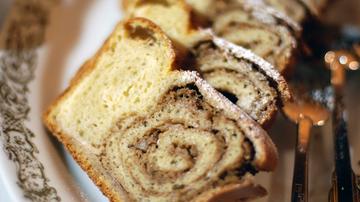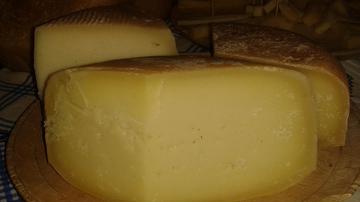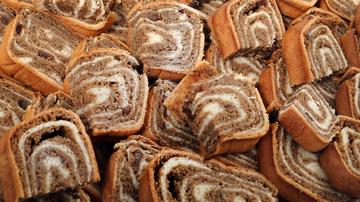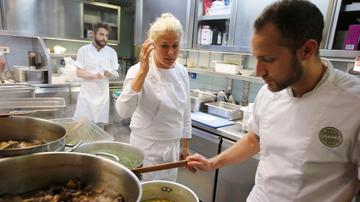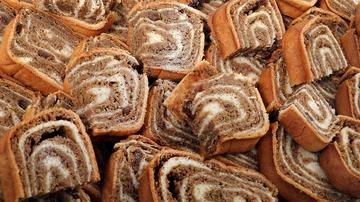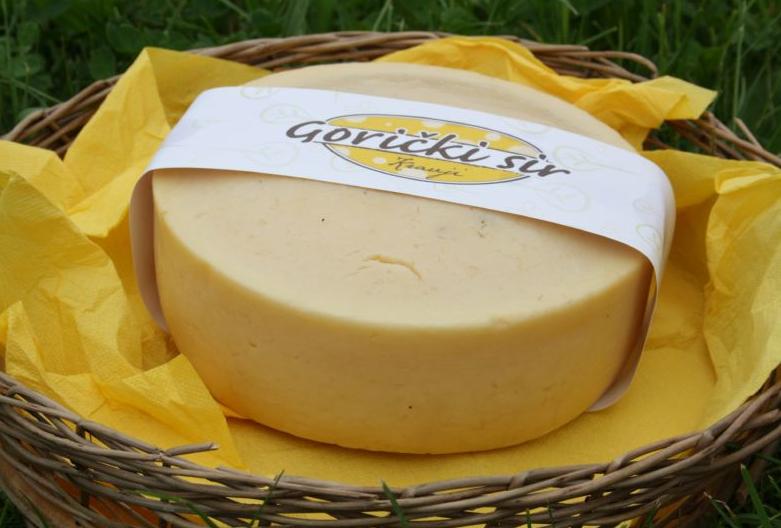
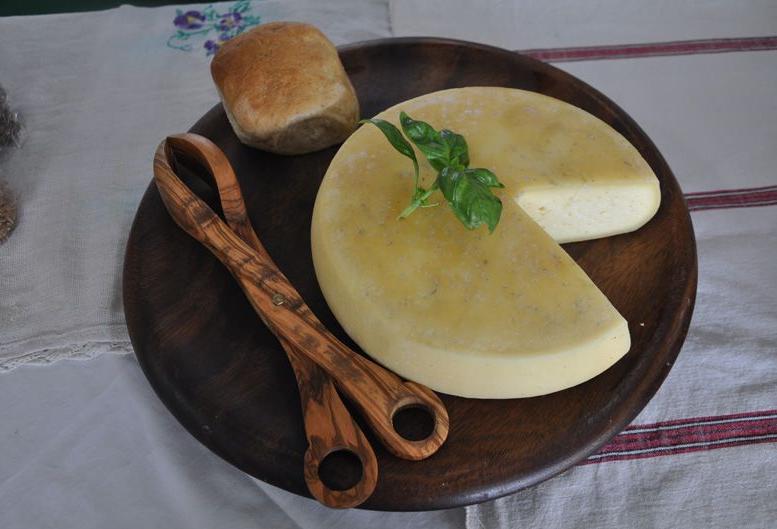
The dairy started operating on the premises of the fire station in July 2010. The purpose of the dairy was to promote and encourage livestock farms to maintain the tradition of feeding hay to their animals and pasturing in the Goričko Landscape Park. Farms participating in the Landscape in Harmony project maintain meadows as a habitat for butterflies and other pollinators which are important for the production of food without the application of chemical substances and mineral fertilisers. Sheep’s, goat’s and cow’s milk is processed into cheese with the equipment owned by the Goričko Landscape Park public institution. Cheese is a welcome addition to the culinary offerings of Goričko and the broader region. By purchasing cheese, consumers support the conservation of the landscape and the development of non-traditional products in Goričko.
The dairy is managed by Valentina Šeruga Lazarovski, a veterinary practitioner by profession, and her husband, Vanče Lazarovski. They have about 40 goats and sheep, and purchase cow’s milk from village stock farmers who graze their cows on pastures alone and do not feed them silage and supplements. “Not far from the dairy in Ratkovci, my husband and I rented 23 hectares of overgrown land. We moved the goats and sheep there and substantially increased the flock,” says Šeruga Lazarovski. Because it was possible to obtain funds for the purchase of a modern tractor or lawn mowing equipment, but not for a live lawn mower – a goat or a sheep, they came up with an innovative project, Adopt a goat. “Anybody who wants to can contribute funds for the purchase of a goat or sheep or for the upkeep of the animals, and in return, they will receive goat or sheep dairy products for three years.” They have no shortage of plans for the future as well – including the expansion of the cheese dairy. In a few years when the animals have cleared the overgrowth on the 23 hectares, the couple will find new overgrown land and move their flock there, while the owners will be able to use the cleared areas for farming.
Natural dairy products with natural additions
The Šeruga Lazarovski family sell cheese, yoghurt, cottage cheese, sour cream and whey in their shop at the cheese dairy and at the marketplace in Murska Sobota. They sell yoghurt and cheese from cow’s milk also to the Slovenian supermarket chain Tuš and are part of the Tuš trademark Slovenske dobrote (Slovenian delicacies). “We supply more than one thousand thick yoghurts for Tuš a week and between 500 and 600 drinkable yoghurts, and the scope of orders is growing,” explains Šeruga Lazarovski. She and her husband make yoghurts also from goat’s and sheep’s milk. They also offer soft and semi-soft cheeses from all three types of milk, sour cream, albumin and regular cottage cheese and whey.
“We make natural dairy products to which we add natural additions, which are not produced industrially,” she emphasises. Instead of industrial bases, she and her husband add in their yoghurts jam which they make themselves. “We add elderflower, apples and other additions from local products in drinkable yoghurts; the only exception is ginger, which is imported.” Their sustainable production of agricultural products with high biological value is complemented by the sustainable rearing of animals which graze on pastures and their traditional processing methods. They produce goat’s and sheep’s milk themselves and purchase 300 to 350 litres of cow’s milk per week from neighbouring farmers. Some 200 litres of milk a week is processed into cottage cheese and sour cream. The daily processing capacity is 700 litres of milk.
Their yoghurts topped with cream are in greatest demand, followed by cheeses and other dairy products. The couple invented the recipes themselves and with the help of relatives. “My husband is from Macedonia and he learnt how to make soft cheese in brine and yoghurts already at home. I’ve learnt the craft of cheese-making at my relatives in France. I upgrade my knowledge at courses and I constantly experiment,” says Šeruga Lazarovski.
Their dairy products bear the CE marking which guarantees to consumers that they comply with the strictest standards in veterinary regulations in Slovenia and quality standards of the European Union.
Sustainable rearing
Goats and sheep are kept outdoors on pastures also during winter where the family takes care of them. “It means a lot that our animals are grazing freely and enjoy natural conditions. We try to maintain sustainable rearing and traditional processing methods which serve as the basis for our sustainable production by which we ensure the high biological value of our end products.” They maintain that demand for their dairy products, particularly cheeses, is already greater than they are able to produce from the available milk. Employees of the Goričko Landscape Park are thus striving to establish a network of five to ten farmers in Goričko who would feed animals with grass fodder in an extensive grazing and mowing system and thus contribute to the preservation of meadows. Transportable 100-litre cooling containers for milk collection and two milk tanks for transportation of milk to the cheese dairy will be available to future owners of dairy breeds of goats and sheep.
Although the rearing of sheep and goats has no tradition in the Prekmurje region, it may, given relatively little investment and the utilisation of overgrown land, provide a basic income for a farmer or a goat and sheep breeder. According to calculations, a flock of 30 animals of a dairy breed is enough for one person to survive with the profits from the processing of milk into various cheeses. Farmers are thus encouraged to start rearing goats and sheep and take advantage of the opportunity offered by the first traditional cheese dairy in the Goričko region.
Vesna Žarkovič, SINFO




















































